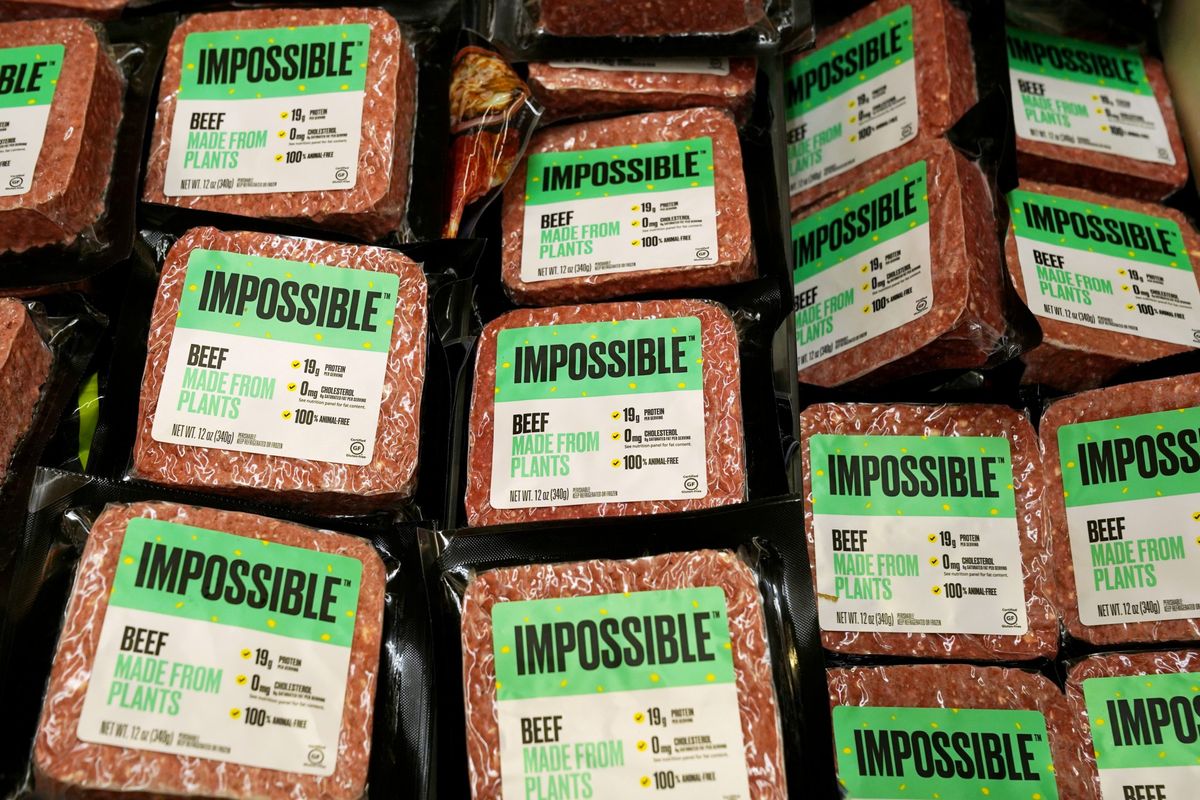The rise of plant-based meat in China

A few minutes every morning is all you need.
Stay up to date on the world's Headlines and Human Stories. It's fun, it's factual, it's fluff-free.
“Fundamentally, using plants to create meat is so much more efficient than using animals to create meat, and the affordability of plant-based meat will pass animal-based meat as we reach economies of scale and optimize the food system for human nutrition.”
Are burgers destroying the world?
- At this point, it’s no secret that beef production is a massive problem when it comes to carbon emissions.
- While the statistic varies slightly depending on who you ask, the consensus is that agriculture contributes between 15% to 20% of total greenhouse gas emissions worldwide, which is more than the transportation sector.
- In a report created by over 100 experts and published by the Intergovernmental Panel on Climate Change (IPCC), Hans-Otto Pörtner, an ecologist and IPCC co-chair, said, “We don’t want to tell people what to eat. But it would indeed be beneficial, for both climate and human health, if people in many rich countries consumed less meat, and if politics would create appropriate incentives to that effect.”
- Brazil, one of the leading global exports for beef production, has especially seen the effects that beef production has on the environment.
- As forests are cleared to create new pastures, some 70% of former forests in the Amazon have been cleaned out and turned into pastures for cattle to graze.
- So, while electric vehicles are a great green initiative, cars aren’t the problem. It’s cows.
How does this affect China?
- China has been making huge strides in reducing greenhouse emissions, including moving away from eating as much meat.
- In 2016, as part of its pledge to bring down carbon emissions, the Chinese government promised to try and cut the country’s meat intake by 50%. It was a move that many critics praised. China was one of the only countries to promote such a radical solution.
- Although China still consumes 28% of the world’s meat, the country accounts for nearly 20% of the world’s total population. The United States only accounts for about 5% of the world’s total population while eating the most meat for an individual country.
- Since the initial plan was enacted in 2016, many of China’s largest cities are bustling with vegetarian options with alternative meat solutions for beef and chicken consumers. KFC now offers plant-based chicken nuggets and meatless dish options can now be found in chains like Starbucks and Taco Bell.
- In Hong Kong, according to a report by the city’s Vegetarian Society this year, 40% of population in the city of 7.5 million classify themselves as vegan or flexitarian. This is compared to 2008 when that figure was just 5%
- The thing is that beef isn’t the biggest problem that China faces when it comes to cutting down meat consumption. Instead, China is the leading consumer of one type of meat: pork.
What is Impossible Foods doing about this problem?
- Impossible Foods, one of the world’s largest suppliers of plant-based meats, has recently made several large moves throughout Greater China, including dropping the costs of Impossible Beef and launching Impossible Pork in Hong Kong.
- “We are excited about the dramatic growth in Hong Kong since our launch in 2018, where our footprint in restaurants has grown by 160% since Jan 2020 and our retail network continues to expand,” said Heidi Nam, General Manager, Impossible Foods Hong Kong.
- “Our intention is to ultimately undercut the price of ground beef from cows – a crucial step in furthering the company’s mission to turn back the clock on global warming. Stay tuned for additional price cuts in the future.”
- In an email comment to TMS regarding the pork product launch, a company spokesperson explained, “As part of our longer-term plan and mission, we are aggressively working to lower our costs and lower our prices. It’s always been important to us to make our product as affordable as possible, and more affordable than animal products.”
- Fundamentally, using plants to create meat is so much more efficient than using animals to create meat, and the affordability of plant-based meat will pass animal-based meat as we reach economies of scale and optimize the food system for human nutrition.”
- It’s important to note that Impossible Pork is now only available to diners through foodservice distributors, so the restaurant owner determines the final dish’s price point for the end-consumer," added the spokesperson.
What’s next?
- With pork being a huge product in China, the implementation of Impossible Pork could prove to be a massive breakthrough for the government’s push to reduce meat consumption across China.
- While Impossible Pork has yet to be implemented across Hong Kong fully, some companies, such as Green Common, have also already established themselves in Hong Kong.
- Speaking with TMS back in July, Green Common Chief Executive Officer David Yeung explained that a faux-pork was already being served in over 14 restaurants in the city.
- Yeung believes that not only would plant-based meats assist with the climate crisis, but they could also help prevent another global pandemic.
- “Our company is all about building a sustainable food system and moving the world to be less dependent on animals and meat and I believe we can move the world to a place that is less prone and susceptible to this kind of outbreaks,” Yeung explained.
You drive the stories at TMS. DM us which headline you want us to explain, or email us.




Comments ()